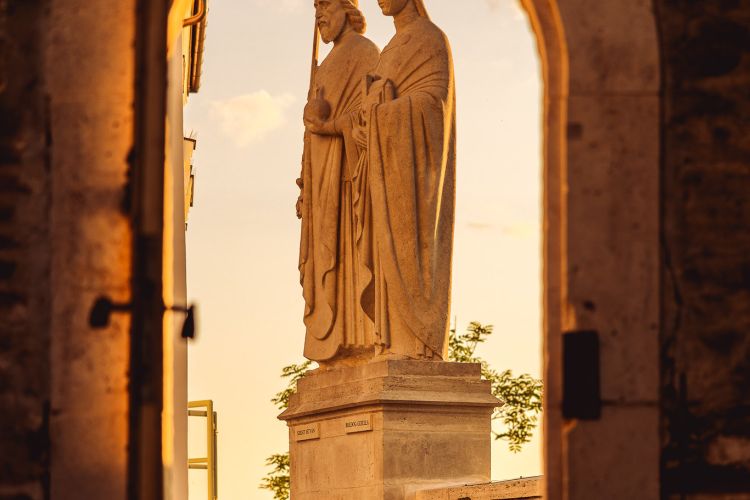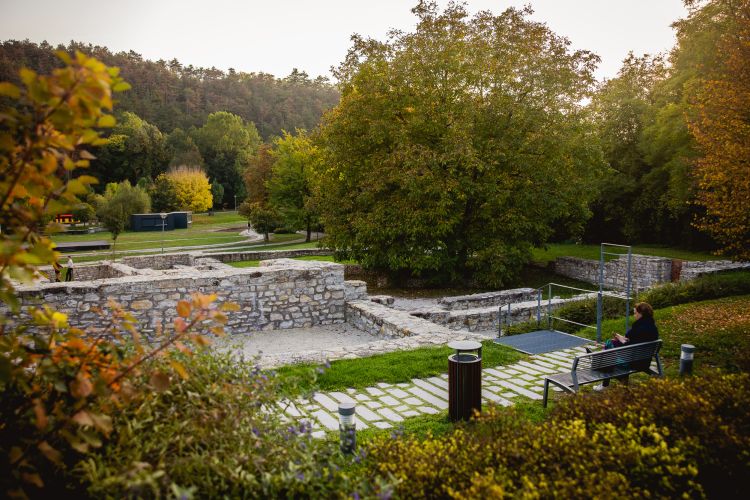
When strolling through Veszprém’s historic avenues and squares, we should always remember the queen who lived 1000 years ago and whose efforts remain clearly evident today. She is known as Blessed Gisela, wife to King Stephen I, the founder of the Hungarian state. She laid the foundations of the town of Veszprém as we know it today, and was instrumental in helping her husband firmly establish Christian faith in Hungary.
This is all the more remarkable because Gisela was not born on Hungarian soil. She was the daughter of Prince Heinrich of Bavaria and even as a young girl, she was already expertly educated in the Christian faith, as well as having a wide breadth of knowledge in more worldly matters. She and Stephen were wed at the Cathedral of Cologne in 996 and at the turn of the millennium, on Christmas of 1000 – or possibly on New Year’s Day 1001, according to some sources – she and her husband were crowned together as Hungarian monarchs. A great number of German knights accompanied Gisela to Hungary; their traditions are still evident in the life of the region, harmoniously complementing the existing Hungarian traditions.
Gisela’s entire life was characterised by a profound spirit of charity and devotion to others. In addition, she had the capacity for constant, tireless work, one of the fruits of which was the bishopric founded in Veszprém as well as the Cathedral, considered the crown jewel of the Castle of Veszprém.
Tradition has it that she also personally worked on some of the embroidery of the coronation robe, which is safeguarded with the other Hungarian national relics, and which is also closely connected to Gisela’s life in Veszprém.
The royal couple had two sons, Ottó and Prince Emeric. Only the latter reached adulthood, but before he could take over the reins of the kingdom from his father, he died tragically during a hunting trip.
After her husband’s death, Gisela returned to Bavaria and settled down in the convent of Passau, of which she later became Mother Superior. Her relic can be found in the Gisela Chapel, in Veszprém, the city that pays homage to her memory with its title: “the City of Queens”.

